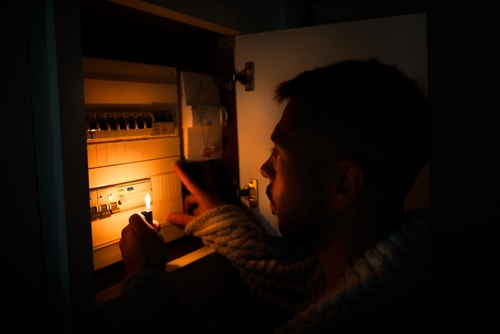 If you experience frequent power outages where you live, you know the value of a backup generator. Losing power for a couple hours is annoying, but an outage lasting much longer starts to be expensive, and even dangerous. That’s why it’s important to give your generator regular maintenance. What that maintenance entails—and how often you need to perform it—depends on what type of generator you’re using.
If you experience frequent power outages where you live, you know the value of a backup generator. Losing power for a couple hours is annoying, but an outage lasting much longer starts to be expensive, and even dangerous. That’s why it’s important to give your generator regular maintenance. What that maintenance entails—and how often you need to perform it—depends on what type of generator you’re using.
If you’ve invested in a propane-powered standby generator, most manufacturer guidelines recommend performing a tune-up every two to four years, or after every 200 to 400 hours of use. If you aren’t sure the last time you changed the oil, cleaned the filters and spark plugs, or checked battery levels, you should put that at the top of your to-do list and follow the manufacturer’s directions.
In addition to mechanical maintenance, you can protect against exterior corrosion by touching up chipped paint. You also want to make sure small animals haven’t created a nest underneath the unit. (Ask your dealer about installing a barrier to help prevent critters from moving in.) A confident DIY-er can handle most of the tasks, but you may want to call a pro.
A portable generator requires a little more frequent attention. You should change the oil and change the spark plug every year, or after every 100 hours of use. For every 200 hours of operation, you should clean or change the air filters, and you need to check the oil level before each use.
Here in southwestern Virginia, a summer thunderstorm or winter ice and snow are equally likely to bring down lines and knock out electricity, leaving you without power for days. And wetter storms mean flooding can affect power, too. It’s more important than ever to be prepared. A backup propane generator comes on within seconds of a power failure to keep your lights on and your refrigerator, furnace and a/c running until the utilities get the lines back up. It will also keep security systems on—giving you peace of mind, especially if the power fails while you’re away.
Propane generators are quiet, extremely efficient and clean-burning, with low emissions. They are less expensive (and less stinky) to run than gas-powered options, too.
There are a wide variety of size options, from “essential power” models that will power key equipment such as your refrigerator, heat, and lights, to true whole-house generators that can manage the demands of most extra-large homes, even during extended outages. If you already use propane in your home, it’s easy to add a standby propane generator, and we can help make sure it’s connected properly. We’ll also ensure you always have enough propane for your daily needs as well as to get you through a storm with our reliable automatic delivery service.
Contact us today for more information about how a generator can help protect your home—and even help lower your insurance costs!